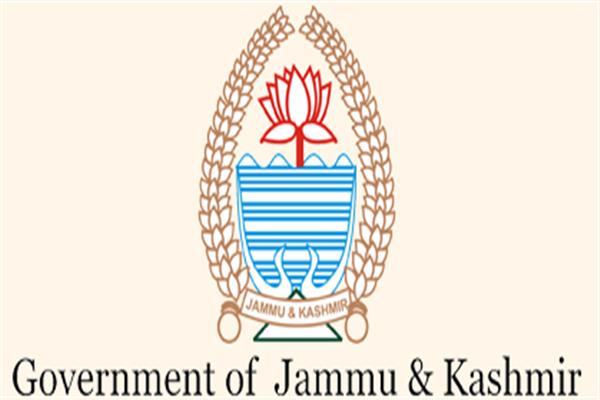J&K Civil Services, Employees Conduct Rules being violated blatantly
No seriousness towards Apex Court judgments, GAD Circular
Mohinder Verma
JAMMU, Dec 31: In blatant violation of Jammu and Kashmir Civil Services (Classification, Control and Appeal) Rules, 1956 and Jammu and Kashmir Government Employees (Conduct) Rules, 1971, several Government departments have failed to initiate departmental proceedings against large number of officers against whom FIRs under Prevention of Corruption Act have been registered by the Anti-Corruption Bureau (formerly State Vigilance Organization).
This is notwithstanding the fact that the General Administration Department on the instructions of Chief Secretary BVR Subrahmanyam has already made it clear to all the departments that there is no legal bar to the holding of disciplinary proceedings and the criminal trial simultaneously.
The Rule 3 of Jammu and Kashmir Government Employees (Conduct) Rules, 1971 states: Every Government employee shall at all times maintain absolute integrity, devotion to duty and do nothing which is unbecoming of a Government employee.
If any Government employee violates this Rule and his/her act amounts to misconduct then he/she is required to be dealt with under the provisions of Jammu and Kashmir Civil Services (Classification, Control and Appeal) Rules, 1956.
Moreover, the Supreme Court in the cases titled “State of Rajasthan Verus B K Meena and Others” and “State Bank of India and Others Versus Neelam Nag” has held that approach and the objective in the criminal proceedings and the disciplinary proceedings is altogether distinct and different.
“In the disciplinary proceedings, the question is whether the respondent is guilty of such conduct as would merit his removal from service or a lesser punishment whereas in the criminal proceedings the question is whether offences registered against him under the Prevention of Corruption Act and the Indian Penal Code (Ranbir Penal Code in case of Jammu and Kashmir) are established and if established what sentence should be imposed”, the Supreme Court has mentioned in the judgment of these cases.
However, the J&K Civil Services (Classification, Control and Appeal) Rules, 1956 and Jammu and Kashmir Government Employees (Conduct) Rules, 1971 besides the explicit judgments of the Apex Court are being violated by majority of the Government departments as they have not initiated departmental proceedings against the officers who have been booked by the Anti-Corruption Bureau under Jammu and Kashmir Prevention of Corruption Act.
Among the officers against whom departmental proceedings have not been initiated by the concerned departments even after registration of FIRs by the Anti-Corruption Bureau are Mukesh Damral, the then Deputy General Manager JAKFED Jammu, who was booked under FIR No.6/2018 at Police Station Vigilance Organization Jammu; R K Bhat, the then Director Rural Development Department Jammu and others, who were booked under FIR No.8/2018 at Police Station Vigilance Organization Jammu.
Dr Liaqat Ali Khan, Dental Surgeon, who is facing FIR No.13/2018 registered at Police Station Vigilance Organization Jammu; Abdul Qayoom Khan, the then Managing Director State Forest Corporation booked under FIR No.16/2018 at Police Station Vigilance Organization Jammu and Mohd Yousuf Malik, the then Assistant Commissioner Development Reasi booked under FIR No.19/2018 at Police Station Vigilance Organization Jammu.
The other officers who have been spared of departmental proceedings under J&K Civil Services (Classification, Control and Appeal) Rules are Raman Uppal, the then AEE Urban Local Bodies Udhampur booked under FIR No.22/2018; Tariq Mehmood Balwan, the then Executive Officer Municipal Committee Doda booked under FIR No.28/2018 and Gian Chand Khajuria, the then Tehsil Supply Officer Udhampur booked under FIR No.36/2018.
“Moreover, there are numerous cases wherein officials booked by the Anti-Corruption Bureau were placed under suspension by the concerned departments on the recommendations of the Investigating Officer but thereafter the procedure under J&K Civil Services (Classification, Control and Appeal) Rules was not followed leading to revoking of their suspension by the High Court”, official sources said.
One such instance is the case of Pranav Gandotra, the then TSO Satwari, whose suspension was revoked by the High Court mainly on the ground that Food, Civil Supplies and Consumer Affairs Department failed to follow the procedure. He has been booked under FIR No.21/2018.
It is pertinent to mention here that soon after the suspension of any officer a formal charge-sheet is required to be served within the specified time-frame otherwise the suspension is concerned as an illegal act. Moreover, the departmental enquiry is required to be completed preferably within a period of 90 days or maximum within a period of six months.
“In almost all the FIRs registered by the Anti-Corruption Bureau there were no orders from the court restraining the Government from undertaking departmental proceedings”, sources further informed, adding “non initiation of simultaneous departmental proceedings amounts to shielding the officers from immediate action, which can be initiated after following procedure laid down under J&K Civil Services (Classification, Control and Appeal) Rules, 1956.


